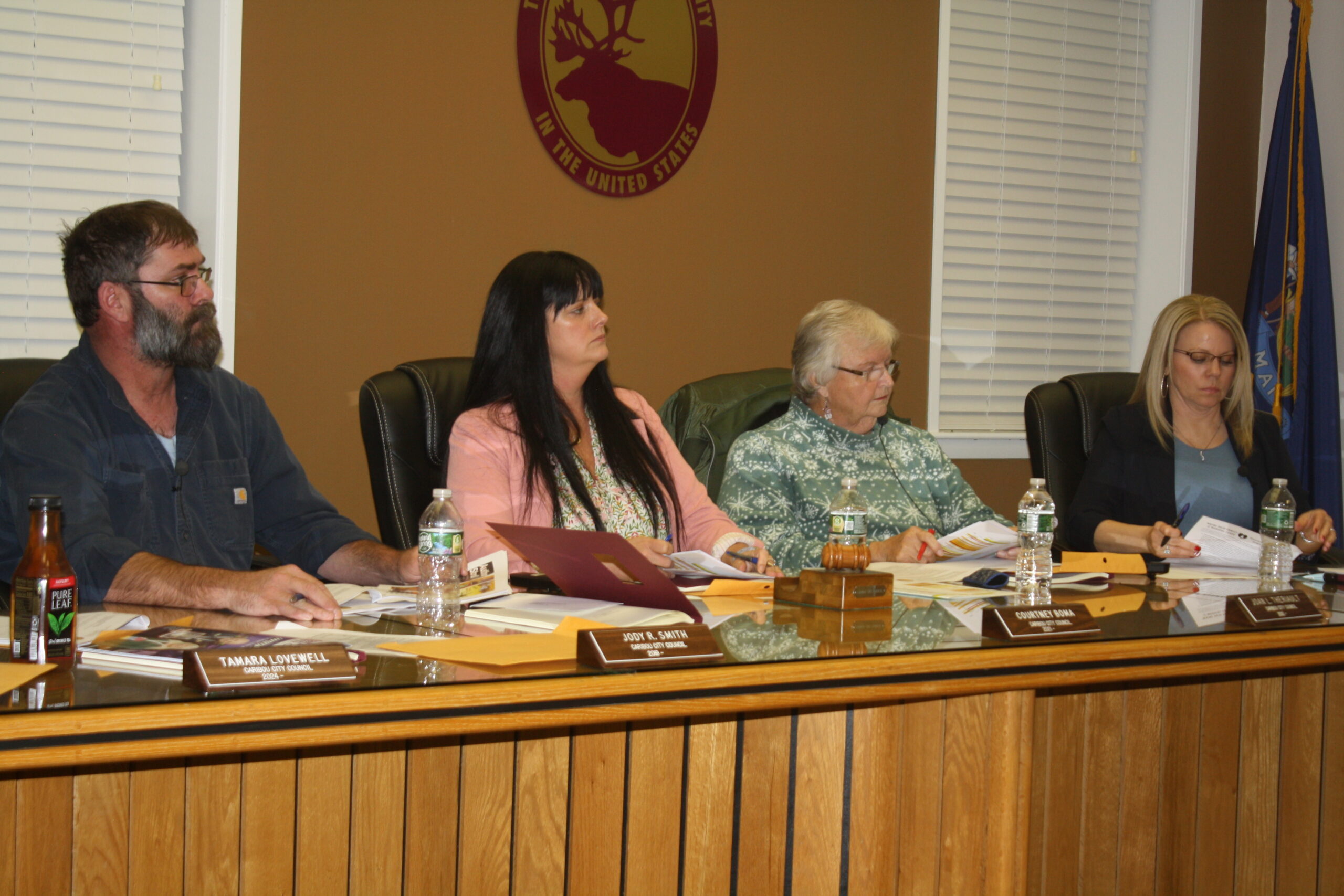
CARIBOU, Maine – Caribou city councilors opted to not acquire 28 properties through unpaid taxes Monday, citing a recent Supreme Court decision that they said makes it too costly for the city to sell or demolish properties.
Last year, the U.S. Supreme Court ruled in the case of Tyler v. Hennepin County, Minnesota, that municipalities could no longer keep proceeds from sales of tax-acquired properties that exceed the amount of taxes owed by property owners. City leaders have said that the law could hinder Caribou’s ability to acquire and dispose of blight, which has become a higher priority in recent years after a rise in problem properties and citizen complaints.
State tax lien foreclosure law, revised after the Supreme Court ruling, states that when municipalities acquire properties through unpaid taxes, they must try to contact the former owner, then attempt to sell the property through a real estate agent at the highest price, even if it goes to a former owner who did not maintain the property before.
Previously, a city like Caribou could have demolished a blighted building without contacting the prior owner or trying to sell the property.
“It’s federal law now, so that’s the problem,” said councilor John Morrill. “It costs a lot for small communities to do all that.”
The council’s decision Monday means that the city will not acquire the 28 properties for which they waived foreclosure. Together, the properties would have a total tax lien of $20,159 if the city had chosen to proceed with the foreclosures.
All those properties are mobile homes, for which the city would have to pay the leases to the owner of the land they sit on if it acquired them through taxes, said Finance Director Carl Grant.
While attending the Maine Municipal Association’s yearly convention in October, Grant learned that the Maine legislature could consider changing state law to better help municipalities deal with tax-acquired properties under federal law.
Until then, MMA recommended that municipalities continue to waive foreclosure on their most burdensome properties until hearing if the law changes, Grant said.
The council voted 4-to-3 to waive the foreclosures on the 28 mobile homes. That includes 20 trailer park sites at 557 Access Highway near the former Riverside Motor Court, an apartment complex that burned in 2022.
Other properties include 312 Washburn St. Lot 21, two lots at 215 Powers Road, 188 West Gate Road, 296 Washburn St., 320 Washburn St. Lot 4, 296 Washburn St. Lot 36 and 306 Washburn St. Lot 30. The council’s vote means that 39 other properties will remain on the tax-acquired property list.
Councilor Tamara Lovewell, who voted against the foreclosure waivers, questioned whether the city would be better off trying to sell the properties at fair market value through the process specified in federal and state law.
Often these properties are “borderline blight” and have so little value at that point that many real estate agents are not interested in managing the sale, Grant said.
Councilor Dan Bagley questioned how many of the total properties on Grant’s list are considered blight. Bagley also voted against the foreclosures, along with councilor Jody Smith.
Typically, the city code enforcement officer would compile that list but there currently is no full-time officer, said City Manager Penny Thompson. Since Grant recommended waiving foreclosure, she opted to not do more research on those properties, she said.
The city is reviewing applications for the vacant code enforcement officer position, Thompson said.
In other business, the council voted 5-to-2 to pay the full 1-percent premium for Paid Family and Medical Leave, which Gov. Janet Mills signed into law in 2023.
Starting in January, employers with 15 or more employees who were working between October 1, 2023 and September 30, 2024 must start making payroll tax contributions to family and medical leave.
The law allows employees to take up to 12 weeks of leave to care for a family member with serious health conditions, to deal with one’s own serious health issues, to help themselves or a family member stay safe after abuse or violence or for emergencies related to a family member’s pending military deployment, according to the Maine Department of Labor.
Benefits will not go live until May 1, 2026, but employers are expected to contribute starting in 2025 so that the Paid Family and Medical Leave fund will have sufficient funds to cover those benefits then, according to the Maine Department of Labor.
Currently, the law allows employers to either cover the full 1-percent premium or have the employer and employees split it at 0.5 each, Thompson said.
Thompson recommended paying the full premium in 2025 because two of the city’s four employee collective bargaining units have already negotiated contracts. Contract negotiations would need to be reopened with those two units if the city wanted to propose contributing 0.5 percent for those employees’ benefits, Thompson said.
Since the city’s estimated 2025 payroll total is $4.8 million, the 1-percent contributions will cost the city $48,000 next year, Grant said.
The collective bargaining units include unions for city police officers, firefighters and paramedics and public works employees.
The next Caribou City Council meeting will be held Monday, Dec. 16 at 6 p.m. at the Caribou Municipal Building, 25 High St.







